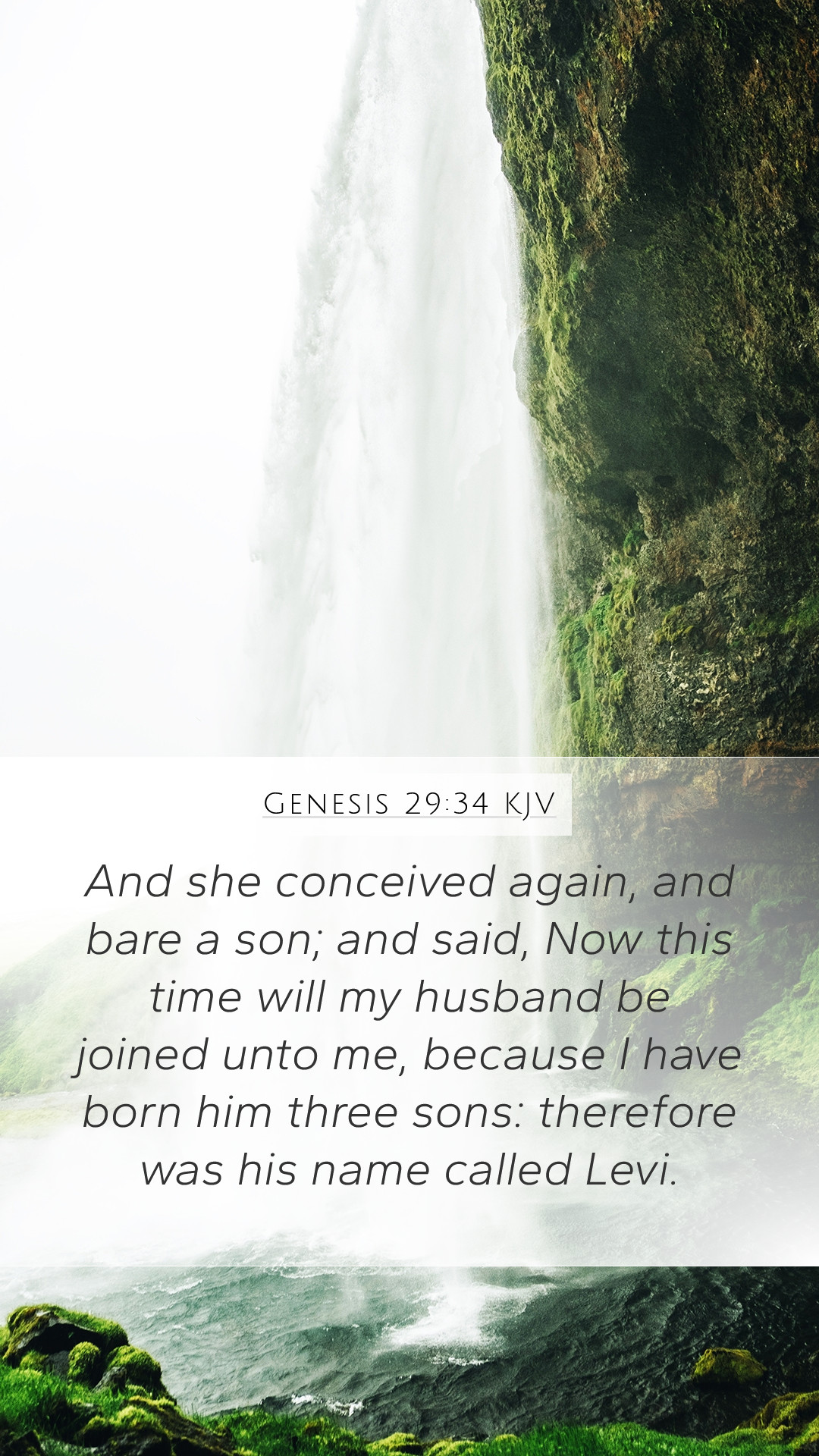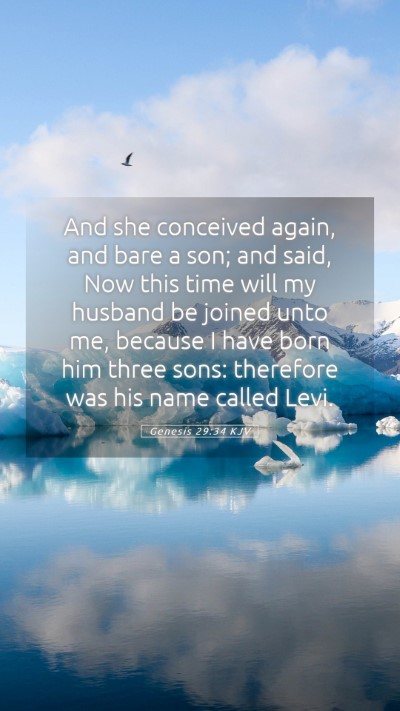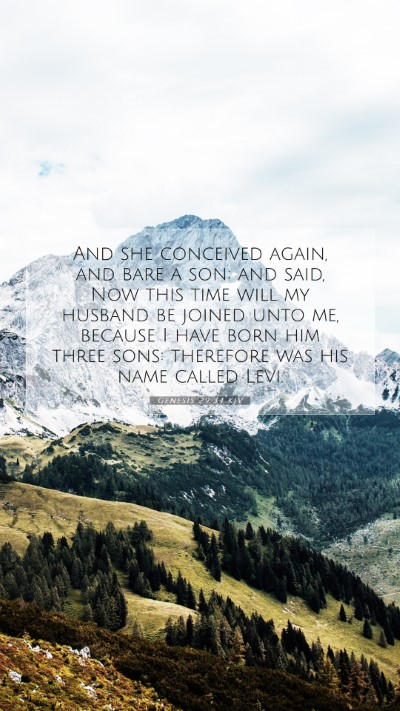Bible Verse Commentary: Understanding Genesis 29:34
Genesis 29:34 states: "And she conceived again, and bare a son; and said, Now will I praise the Lord: therefore she called his name Judah; and left bearing."
Overview of Genesis 29:34
This verse is part of the narrative concerning Leah, the wife of Jacob. After bearing her first son, Reuben, Leah experiences a complex range of emotions shaped by her desire for Jacob’s affection. Genesis 29:34 emphasizes the significance of her third son, Judah, as a pivotal moment in her spiritual journey.
Insights from Public Domain Commentaries
In exploring the meaning of Bible verses, we can draw from prominent commentaries including Matthew Henry, Albert Barnes, and Adam Clarke.
-
Matthew Henry:
Henry notes that Leah, recognizing God’s favor in giving her another child, praises Him with gratitude. Naming her son Judah signifies her acknowledgment of God's grace and her desire to turn her heart towards Him rather than continue seeking Jacob's love. This reflects a profound spiritual awakening.
-
Albert Barnes:
Barnes provides insights into the cultural and familial dynamics involved. He elaborates on how Leah’s situation exemplifies the struggles and rivalries within the patriarchal family of Jacob. The naming of Judah, meaning "praise," serves as a testament to Leah’s shifting focus from her earthly desires to divine gratitude.
-
Adam Clarke:
Clarke highlights the significance of Judah in biblical prophecy, suggesting that from this line would come Israel’s future leaders, including King David and ultimately, the Messiah. Therefore, the verse not only captures Leah's personal triumph but also hints at the larger theological narrative of redemption in the Bible.
Understanding the Historical Context
To delve further into the historical context of Bible verses, it's essential to consider the cultural settings of Leah and Jacob’s family. Leah’s plight, being unloved by Jacob in contrast to her sister Rachel, illustrates the emotional turmoil and familial strife common in ancient Near Eastern contexts.
Theological Implications
Leah’s act of praising the Lord upon the birth of Judah reflects a transformation. Understanding Scripture here indicates a shift from desiring affection to recognizing divine providence. This teaches us about the importance of gratitude and turning to God amidst personal trials.
Application of Genesis 29:34 in Daily Life
Genesis 29:34 encourages believers to reflect on their priorities. The struggle between human affection and divine love is central to many lives today. This verse serves as a reminder to seek spiritual fulfillment over earthly validations.
Cross References
- Genesis 49:8-10: The prophetic lineage of Judah elaborated.
- 1 Chronicles 5:2: Judah’s preeminence among his brothers.
- Matthew 1:2-3: The lineage of Christ through Judah.
Conclusion
In summary, Genesis 29:34 showcases Leah’s spiritual journey, emphasizing themes of praise, acknowledgment of God’s gifts, and the implications of human relationships. It serves as a guide on how to interpret Bible verses, rooting our understanding in both personal experience and divine revelation.
Through Bible study resources, we can further engage with these themes. Resources like Bible study groups, guides, and online tools provide opportunities for deeper exploration and discussion of Scripture.
Encouragement for Bible Study
As you delve into biblical exegesis and Scripture analysis, consider how the narratives and lessons from the Scriptures can be applied to real life. Reflecting on the stories like that of Leah enriches our understanding of faith and God's unwavering mercy.
Fostering a practice of Bible study lessons can lead to transformative insights, not just in understanding isolated verses, but in grasping the overarching themes of the Bible as a whole.


